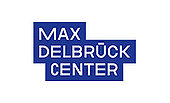Repurposing Niclosamide for (neo-)adjuvant cancer therapy
Keywords
cancer,niclosamid,crc, metastasis,repurposing
Challenge
Despite successful curative treatment of many colorectal cancer (CRC) patients by surgery, prevention of metastatic relapse still remains a therapeutic challenge. Hence, additional therapeutic modalities are needed to ultimately improve survival rates in CRC disease. CRC tumors shed cancer cells into the circulation, often resulting in obscure metastasis before surgical intervention. Importantly, the propensity of cancer cell dissemination differs between patients, making it even more difficult to prevent metastasis in a stratified manner. Several molecular cancer pathways are implicated in promoting tumor dissemination of metastatic cancer cells in CRC. However, no suitable pharmacological treatment exists to date to specifically interfere with metastatic spread and outgrowth in a distinct CRC patient population.
Technology
Niclosamide is an approved drug for the treatment of tapeworm infestation (medication trade name: Niclocide) that might fill this gap for proper pharmacological anti-metastatic intervention during cancer therapy. The present invention offers an attractive drug repurposing opportunity and fast development for establishing a novel promising (neo-)adjuvant cancer therapy. Intensive research revealed that Niclosamide suppresses S100A4 expression and other additional metastasis promoting pathways such as mTORc1, STAT3, NFB and Notch. S100A4 (formerly known as metastasin 1, MTS1) in particular is recognized as an important driver of metastasis in CRC and correlates with tumor aggressiveness and poor survival. Several in-vitro experiments in cancer cell lines underscored Niclosamides inhibitory effect on cellular proliferation, migration, and invasion. Accordingly, Niclosamide interfered with the formation of liver metastasis in appropriate in vivo xenograft mouse models, manifesting its proposed pharmacological effect on tumor progression and hematogenous metastasis. Finally, mouse xenograft model for spontaneous metastasis have been employed to eventually establish Niclosamide´s pharmacological efficacy towards prevention of metastasis in the adjuvant setting. Niclosamide is available as medication for oral administration and applicable for exploring its therapeutic properties in cancer patients. Since Niclosamide shows promising anti-cancer properties and anti-metastatic activity in animal cancer models, further clinical testing is warranted.
Commercial Opportunity
Available for licensing or further collaboration/co-development towards clinical application.
Development Status
Niclosamide is currently being investigated in a single-arm Phase-2 clinical trial, addressing the dosing, safety and efficacy in patients with metastasized colorectal cancer progressing under standard therapy (NCT02519582).
Patent Situation
European patent EP2699319B1 (granted, priority April 2011). US patent US11331290B2 (granted, priority April 2011).
Further Reading
Sack et al., J. Natl. Cancer Inst. (2011) 103, 1018-1036 Li et al., Cancer Letters (2014) 349, 8-14
Dahlmann et al., Cancers 2016, 8(6), 59 Kadri et al., ChemMedChem. (2018) 13 ;1088-1091
Burock et al., BMC Cancer (2018) 18:297





